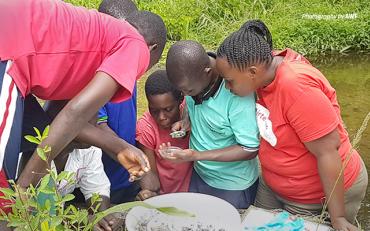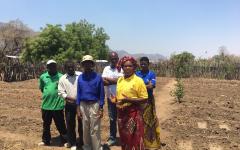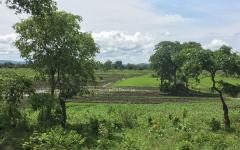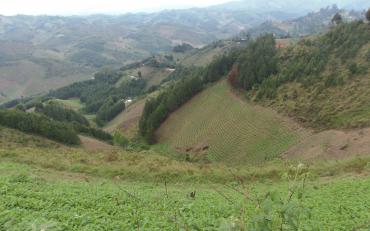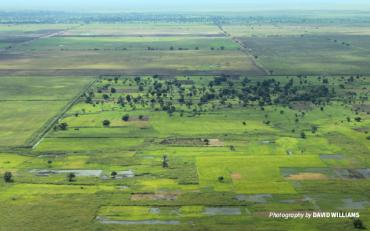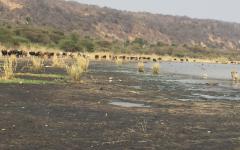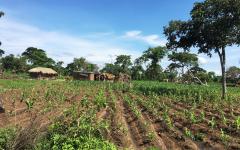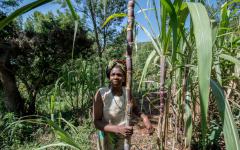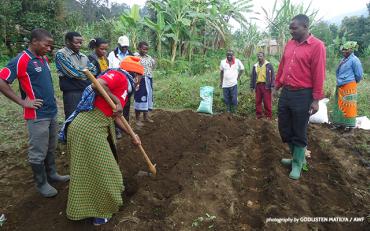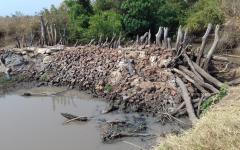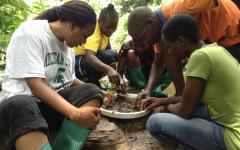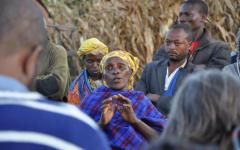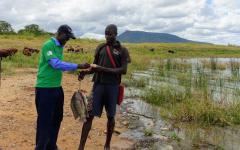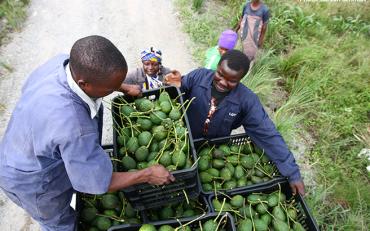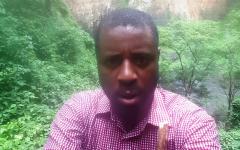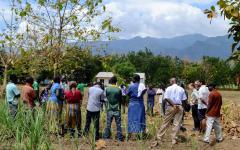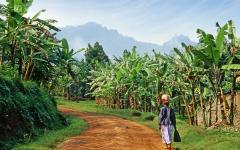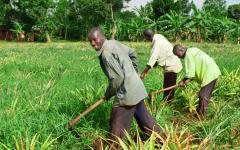The latest stories from our partners and team members from around the world.
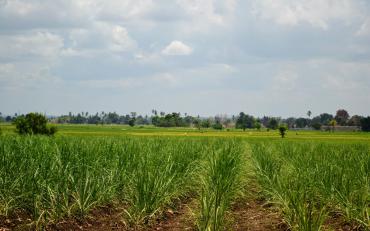
Community-led river monitoring protects wildlife and wild lands
Damas Patrcik Mbaga is based in in the rapidly changing wildlife-rich landscape of Southern Tanzania, overseeing community-led river monitoring initiatives within Kilombero’s Rufiji Basin as part of AWF’s work with the IUCN Sustainability and Inclusion Strategy for Growth Corridors in Africa (or SUSTAIN-Africa) program.
Over 600 species and countless livelihoods depend on a plan for the future of the Kilombero Catchment
Kilombero Valley, where Tanzania’s Kilombero Catchment is located, is immensely important to the nation and to the world due to its precious wetlands resources and ever-dependable rivers – enriching the soils and making the lands more fertile for agriculture. Now environmental challenges are prompting collective action.
Roadmap to Tanzania’s first miombo nature reserve
Since SUSTAIN became active in this region through SNV, we have improved water management practices in the Katuma River, established partnerships between local farmers and agricultural companies, and supported communities with land use planning practices in villages encompassing 45,000ha (roughly the size of Andorra).
Sharing good practices on sustainable land and water use with Tanzanian farmers
Changing the lives of smallholder farmers is the business of Farm Radio International – and radio is how we do it!
This project provided millions of listeners with access to interactive radio programs, highlighting three key practices from the SUSTAIN-Africa program – cocoa growing, clean seed cane, and beekeeping as an elephant deterrent.
In this section
Resources
- Stories
- 12 right answers to inclusive green growth
- Andrea Athanas: On Inclusive Green Growth
- Birk Agri wins competition for best climate innovation in Tanzania
- Business for Sustainable Landscapes
- Chris Buss: On SUSTAIN’s Learning Questions
- David Williams: On sizing up Africa’s major development corridors
- Engaging civil society in land use planning to safeguard Tanzania’s water sources
- Feet in the mud: Moving the financial sector to generate inclusive green growth in Tanzania
- Grace Wairima: On collaborative citizen science
- Mainstreaming inclusive green growth in Tanzania
- Maria Ana Borges: On Value chains for sustainable and inclusive development in Mozambique
- Marie Parramon-Gurney: On Integrated Landscape Management
- Michael Nkonu: On Payments for Ecosystem Services
- Michael Nkonu: On Tanzania’s CEOs Champion Business and Biodiversity Conservation
- Roadmap to Tanzania’s first miombo nature reserve
- Romie Goedicke: On engaging business to secure international public goods
- SUSTAINability in African Landscapes
- The Land Use Dialogue: On the power of dialogues integral to sustainable land use in Tanzania
- The key to unleashing green finance: bridging worlds
- Water Flows Story Competition
- SUSTAIN in the News
- Maps
- SUSTAIN Phase 1: Resources
